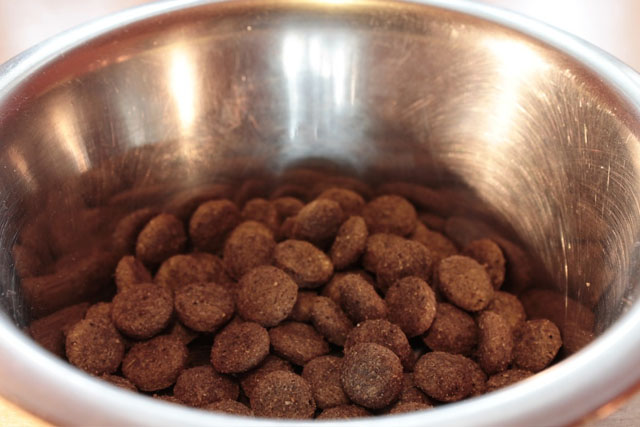



Labradors are notorious for their ability to beg at the table. They have a keen sense of smell and can detect even the slightest hint of food. This makes them relentless in their pursuit of a tasty morsel. Labradors will often sit by the table, staring at their owners with pleading eyes, hoping to be rewarded with a scrap of food. This behavior can be difficult to resist, but it's important to remember that feeding your Labrador from the table can encourage bad habits and lead to weight gain.
Labradors have a knack for stealing food when you least expect it. They are quick and agile, making it easy for them to snatch a piece of food from the counter or even from your hand. Labradors are known for their love of food, and their obsession can sometimes lead them to engage in sneaky behavior. It's important to keep food out of reach and to teach your Labrador proper manners when it comes to food.
Labradors have a strong sense of smell, which can lead them to the trash can. They are notorious for raiding the trash and finding all sorts of delicious (and potentially dangerous) items to eat. Labradors are known for their ability to consume just about anything, so it's important to keep the trash can securely closed and out of reach.
Labradors are notorious for their ability to surf the counters in search of food. They are tall and agile, making it easy for them to reach even the highest surfaces. Labradors have been known to snatch food right off the counter, leaving their owners in shock. It's important to keep food securely stored and to discourage counter surfing behavior through training and management.
Labradors have an insatiable appetite and are constantly on the lookout for food. They will search every nook and cranny in the hopes of finding a tasty treat. This behavior can be frustrating for owners, as Labradors can become fixated on finding food and may ignore commands or become distracted. It's important to provide your Labrador with a balanced diet and to engage them in mental and physical stimulation to help curb their constant search for food.
Some Labradors may develop food aggression, which is a behavior where they become possessive and aggressive over their food. This can manifest as growling, snapping, or even biting when someone approaches their food bowl. Food aggression can be dangerous and should be addressed with the help of a professional trainer or behaviorist. It's important to establish clear boundaries and to teach your Labrador that their food is not something to be guarded.
Labradors have a tendency to overeat, which can lead to weight gain and obesity. Labradors have a voracious appetite and will often eat whatever is put in front of them. It's important to monitor your Labrador's food intake and to provide them with a balanced diet. Overeating can lead to a variety of health issues, so it's important to establish a feeding routine and to avoid overfeeding your Labrador.
Labradors can develop anxiety around food, especially if they have had negative experiences in the past. This can manifest as fear or avoidance of certain types of food or even mealtime rituals. It's important to create a positive and calm environment around food and to address any underlying anxiety with the help of a professional. Creating a routine and providing your Labrador with a safe space during mealtime can help alleviate food-related anxiety.
Some Labradors may develop a tendency to guard their food, especially if they have had to compete for resources in the past. Food guarding can manifest as growling, snapping, or even biting when someone approaches their food bowl. It's important to address food guarding behavior with the help of a professional trainer or behaviorist. Teaching your Labrador that their food is not something to be guarded and providing them with a safe and calm environment during mealtime can help alleviate food guarding tendencies.
Labradors are known for their excessive drooling, especially when it comes to food. The sight and smell of food can trigger a Pavlovian response in Labradors, causing them to salivate excessively. This can be messy and can lead to wet spots on the floor or furniture. While excessive drooling is a natural behavior for Labradors, it's important to keep an eye out for any changes in drooling patterns, as it can sometimes be a sign of dental or health issues.
Leave a Reply
Related posts